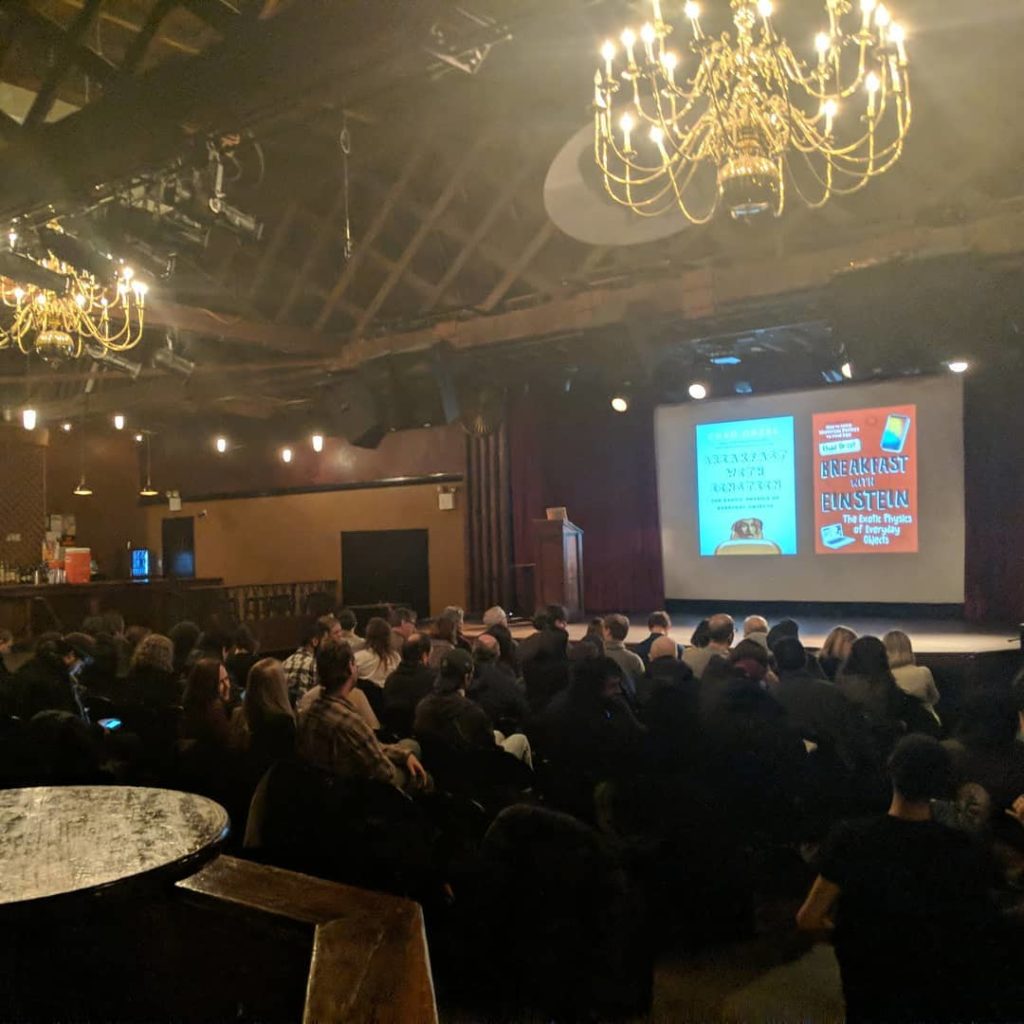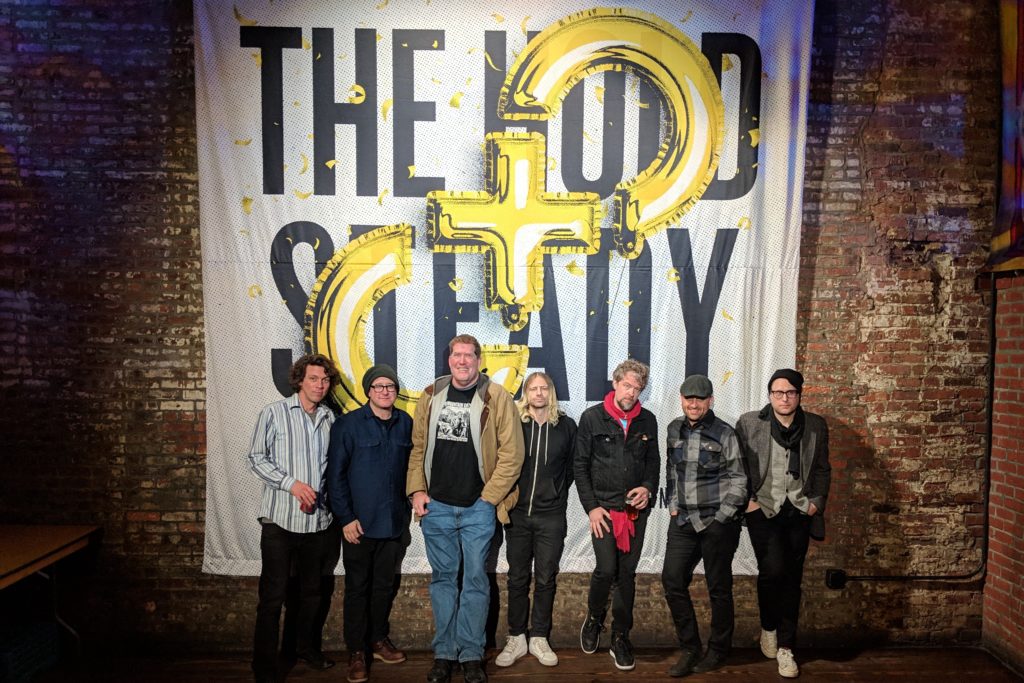I got into listening to podcasts relatively recently, thanks to a combination of radio and a new dog. Radio, because the local ESPN radio affiliate dropped the Dan Le Batard Show after I got hooked. The show is available as a “best-of” podcast, though, which distills three hours down into one, and I started listening to that at night as I put the kids to bed (they both want an adult in the room until they get to sleep, and like listening to music I don’t particularly enjoy, so I bring earbuds in with me and listen to my own stuff).
The dog part is that once we got Charlie the pupper, I once again needed to spend large stretches of time walking around the neighborhood. Much of this time is in the dark, particularly at this time of year, and once I had started listening to the Le Batard show as a podcast during bedtime, it was natural to extend that to listening during dog walks. And, of course, an hour a day of the Le Batard show wasn’t enough material, so I needed to add others to the rotation, and now I’m subscribed to a couple dozen podcasts via the “Pocket Casts” app on my phone, and they’ve taken over a lot of my in-the-car listening, as well.
I’ve also been doing a bunch of podcast interviews recently, to promote Breakfast With Einstein, which of course has led to toying with the idea of doing one myself. It’s probably not super likely to happen, though, because I’ve found that there’s a very particular Thing I’m looking for when I pick what to listen to.
For one thing, while I’m doing a fair number of podcasts where random authors and actors and other random people of note come on to promote stuff, I’m not all that enthusiastic about the “interview random people” format, because it’s a high-variance business. Sometimes the random interviewee is fun and engaging and produces interesting conversation, but sometimes they fall really flat, and it’s just tedious. (As a guest, I try to be in the former category, but I’m sure I sometimes land in the latter for at least some listeners.) I’m also very definitely not into highly researched and polished radio journalism with slick production– I admire people who have the skills to do that, but the end result usually leaves me cold. I’d rather get that sort of thing in print, where I can consume it in about a quarter the time needed for the audio version.
The shows that work well for me are conversational and banter-heavy, dominated by people who already know each other well and have a comfortable relationship. The best bits of the Le Batard show turn on their recurring cast of weirdos, and I’ve recently gotten into the Tony Kornheiser show (another radio show I used to listen to that dropped off our ESPN radio affiliate). Kornheiser very occasionally has guests, but it’s mostly a rotating cast of regulars, which gives their conversations a very relaxed and enjoyable feel.
Also in the same general vein, topic-wise, I listen to a bunch of podcasts from The Ringer, again because I like their conversational feel. The college-hoops podcast One Shining Podcast is sometimes juvenile as hell, but in a way that reminds me of when I used to bullshit about basketball on Usenet back in the day. Their Rewatchables movie podcast is tons of fun, and I generally enjoy the non-interview episodes of The Big Picture. Ringer impresario Bill Simmons does quite a few interviews, which are often skippable, but most of the people he has on are people he’s friendly with, so there’s usually good comfortable banter even with people I haven’t heard on the show before. I have no particular interest in wagering on sports, but I’ll listen to him debate betting lines with Cousin Sal for surprisingly long time because I enjoy they way they give each other shit.
Their media-and-politics podcast The Press Box is also a highlight, though it’s not available in its own feed, alas (I keep seeing the “new episode” indicator on Channel 33 and being disappointed that it’s one of the other shows packaged in there). They also highlight another feature that I like in these, in that they’re political but not strongly partisan: Bryan Curtis and David Shoemaker are both definitely liberal in a way that I find congenial, but they’re not committed to pushing a particular party line, and if someone on the political left does something ridiculous, they’ll point it out. In a similar vein I like Josh Barro and Ken White on All the President’s Lawyers, who banter back and forth and point out absurdities on all sides, but didn’t care for that show’s parent podcast, “Left, Right, and Center” which offers debate between partisans from both political wings and basically just made me hate everyone involved.
The other big political podcast I listen to is the FiveThirtyEight Politics Podcast, which again is coming from a left-leaning place that I find politically congenial, but isn’t invested in pushing a particular set of arguments. They’re just generally wonky in a way that I find enjoyable, and their back-and-forth joking with each other is great.
That’s probably enough podcasts to get across the point about what I like to listen to, which is light on interviews and long on banter. That’s also why I’m unlikely to start doing a podcast any time soon, because that sort of thing is really difficult to arrange, and I don’t know that there’s anybody local who’d be up for it. Rhett and I made a stab at it some years back with an intermittent series of “Uncertain Dots” recorded Google hangouts, but the long-distance logistics of that were a pain and it fell apart. It’d probably be easier to set up something interview-based, but that’s not what I’d want to listen to, so it wouldn’t feel right to produce that.
(That’s not to say I wouldn’t be willing to give it a shot, if somebody wanted to sponsor an attempt, but there’s a non-trivial energy barrier to overcome there, particularly regarding the logistics of recording and editing something.)




